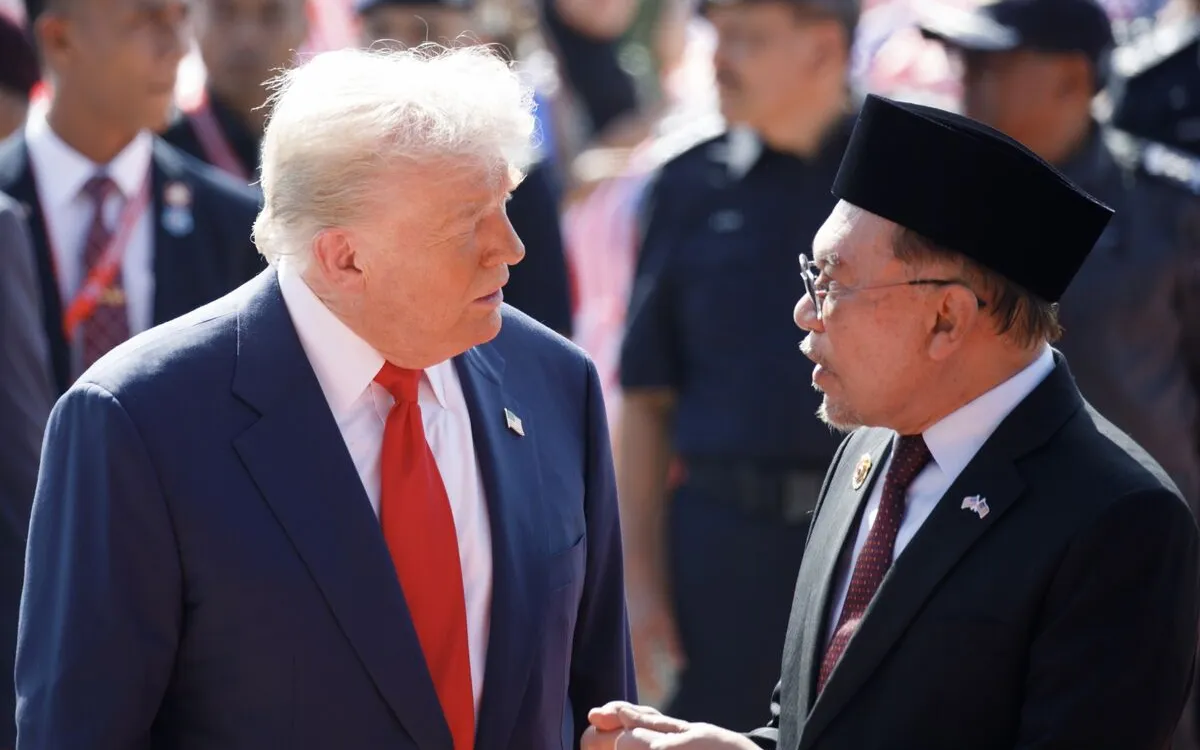
In a significant development for international trade, President Donald Trump and Malaysia’s Prime Minister Anwar Ibrahim officially signed a pivotal trade agreement and a crucial critical minerals pact on Sunday. This landmark event took place in the vibrant Malaysian capital of Kuala Lumpur, marking a strategic effort by the United States to enhance trade relations in Southeast Asia and counteract China’s increasing control over rare earth resources.
During the signing ceremony, US Trade Representative Jamieson Greer highlighted Malaysia's commitment to modifying its tariffs and non-tariff barriers, paving the way for increased trade opportunities between the two nations. Greer expressed optimism about the potential benefits of the agreement, particularly for sectors including agriculture, technology, and services. This trade agreement is expected to bolster economic ties and facilitate a smoother exchange of goods and services.
The signing of the trade agreement comes at a critical time as the US aims to respond to China's tightening grip on rare earths. These minerals are essential for various high-tech applications, and by strengthening ties with Malaysia, the US is seeking to secure a more stable and reliable supply chain. The collaboration is seen as a strategic move to diversify sources of critical materials and reduce dependence on China.
As the US looks to expand its influence in Southeast Asia, this trade agreement with Malaysia serves as a stepping stone towards further economic collaboration in the region. The expected modifications in trade policies are likely to create a more conducive environment for US businesses, allowing them to tap into Malaysia’s growing market.
Overall, this trade agreement not only signifies enhanced bilateral relations but also reflects the US's commitment to fostering a robust trade ecosystem in Southeast Asia, particularly in the face of competitive pressures from China.